 I confess I had no idea Kingdom Season 5 was only one cour until this morning. That was a major surprise, as they’ve all been two (S 3-4) or three (S 1-2) up to this point. Not a pleasant surprise of course, and it leaves me with a conundrum about what to call this post. I guess technically it should be “End” but really, has anything changed with Kingdom? The manga is insanely popular and the anime is obviously made pretty much on the cheap (as good as it is). As such I’m going out on a limb here, as there’s just no reason to suspect there won’t be a sixth (and not just) season.
I confess I had no idea Kingdom Season 5 was only one cour until this morning. That was a major surprise, as they’ve all been two (S 3-4) or three (S 1-2) up to this point. Not a pleasant surprise of course, and it leaves me with a conundrum about what to call this post. I guess technically it should be “End” but really, has anything changed with Kingdom? The manga is insanely popular and the anime is obviously made pretty much on the cheap (as good as it is). As such I’m going out on a limb here, as there’s just no reason to suspect there won’t be a sixth (and not just) season.
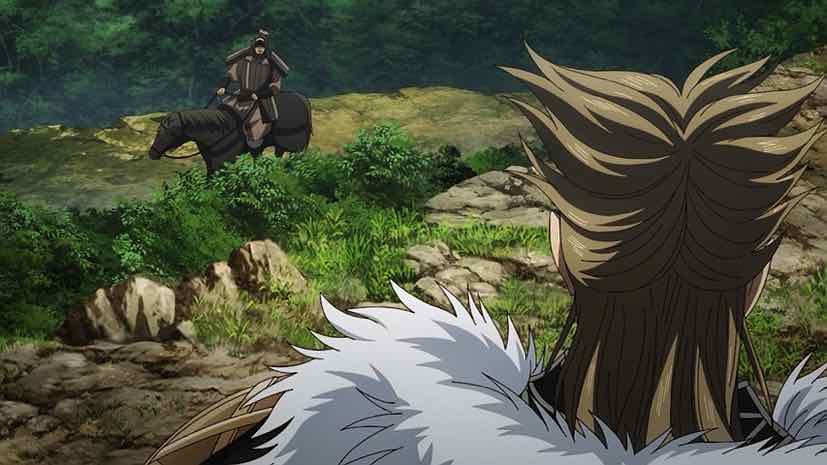 The denouement of the Heiyong arc has been, even more than most Kingdom arcs, a reminder of the ugly reality of war and warriors. Is Huan Yi a bad man? Yes, very. A scumbag. But in war, he’s unquestionably a genius. He runs rings around generals and strategists who think as they were taught in tactical school. Huan Yi has no regard for the textbooks, and no trace of decency or restraint limits his actions. He’s only about the result, and keeping the bloodthirsty psychopaths under him happy.
The denouement of the Heiyong arc has been, even more than most Kingdom arcs, a reminder of the ugly reality of war and warriors. Is Huan Yi a bad man? Yes, very. A scumbag. But in war, he’s unquestionably a genius. He runs rings around generals and strategists who think as they were taught in tactical school. Huan Yi has no regard for the textbooks, and no trace of decency or restraint limits his actions. He’s only about the result, and keeping the bloodthirsty psychopaths under him happy.
 Huan Yi’s means of winning the Battle of Heiyong was deviously clever, no question. As soon as he found out Xin had done his heavy lifting and killed Qing She, he set about unlocking the remaining Zhao forces by targeting Ji Hui. I could do without the series’ glorification of torture – not morally but strategically, as in fact torture is a largely ineffective means of information gathering. But what Huan Yi does with it is as brilliant as it is vile. He knows what Ji Hui’s weakness is and takes aim straight at the heart of it. And in doing so, sows the seeds of dissent within the Zhao army.
Huan Yi’s means of winning the Battle of Heiyong was deviously clever, no question. As soon as he found out Xin had done his heavy lifting and killed Qing She, he set about unlocking the remaining Zhao forces by targeting Ji Hui. I could do without the series’ glorification of torture – not morally but strategically, as in fact torture is a largely ineffective means of information gathering. But what Huan Yi does with it is as brilliant as it is vile. He knows what Ji Hui’s weakness is and takes aim straight at the heart of it. And in doing so, sows the seeds of dissent within the Zhao army.
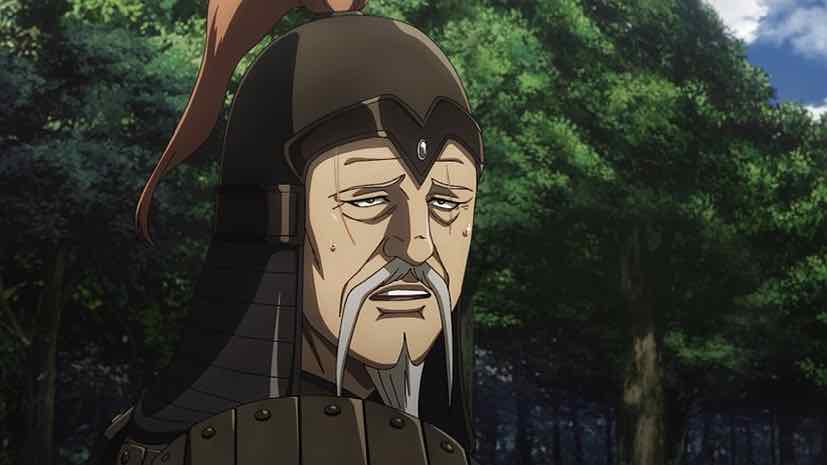 Jin Mao had every right to be pissed off here. Ji Hui begged him to stay and fight on after Qing She’s death, and as soon as his homeland of Liyan came under threat, he bailed on the needs of Zhao in order to serve the needs of his own province. The choice Ji Hui made here – forced on him by Huan Yi – was indisputably the wrong one by strategic standards. I would imagine his future as a commander of Zhao would be effectively over at this point, but he made his choice surely knowing that.
Jin Mao had every right to be pissed off here. Ji Hui begged him to stay and fight on after Qing She’s death, and as soon as his homeland of Liyan came under threat, he bailed on the needs of Zhao in order to serve the needs of his own province. The choice Ji Hui made here – forced on him by Huan Yi – was indisputably the wrong one by strategic standards. I would imagine his future as a commander of Zhao would be effectively over at this point, but he made his choice surely knowing that.
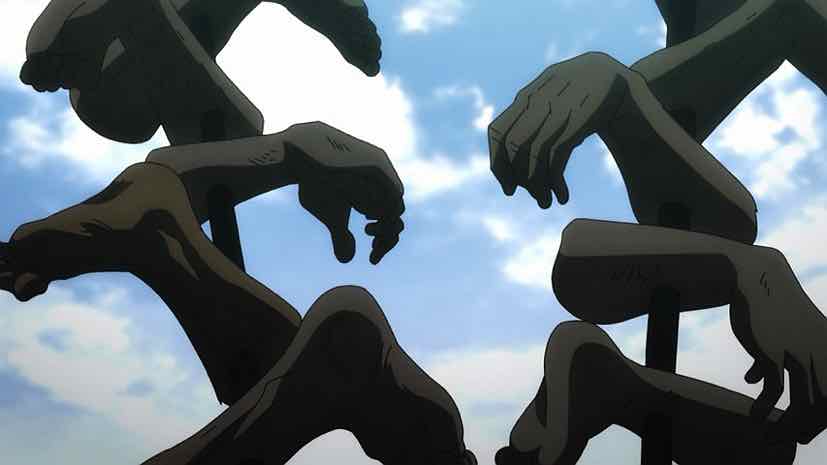 For Huan Yi, this was all gravy. Not only did he get half the Zhao army to abandon the central hill, he did so after they’d build the fortifications he’d need to defend it. Indeed, the only thing that didn’t break his way is that Na Gui elected to bail on him and transfer to the Fei Xin Force. His full reasoning is a matter of some suspicion, but I do think it could be tied to the fundamental weakness of Huan Yi’s approach. Xin inspires loyalty above and beyond the whims of fortune. Huan Yi, on the other hand, commands a loyalty built on gratification. Once he falters in providing it – or uninterrupted success – that loyalty could start to show some cracks pretty quickly.
For Huan Yi, this was all gravy. Not only did he get half the Zhao army to abandon the central hill, he did so after they’d build the fortifications he’d need to defend it. Indeed, the only thing that didn’t break his way is that Na Gui elected to bail on him and transfer to the Fei Xin Force. His full reasoning is a matter of some suspicion, but I do think it could be tied to the fundamental weakness of Huan Yi’s approach. Xin inspires loyalty above and beyond the whims of fortune. Huan Yi, on the other hand, commands a loyalty built on gratification. Once he falters in providing it – or uninterrupted success – that loyalty could start to show some cracks pretty quickly.
 At this point Kingdom does what it often does – pivot sharply in the final stages of a story arc. Usually it’s from military to political matters (though it has done the opposite). As I mentioned a while back Zheng hasn’t appeared at all for this entire season, but that changes in a big way with this finale. The battlefield is left behind altogether, though what takes its place is a sort of battlefield in its own right. The wily old diplomat Cai Ze (unseen since the Coalition Invasion arc) has returned to Xianyang with two very surprising guests in tow.
At this point Kingdom does what it often does – pivot sharply in the final stages of a story arc. Usually it’s from military to political matters (though it has done the opposite). As I mentioned a while back Zheng hasn’t appeared at all for this entire season, but that changes in a big way with this finale. The battlefield is left behind altogether, though what takes its place is a sort of battlefield in its own right. The wily old diplomat Cai Ze (unseen since the Coalition Invasion arc) has returned to Xianyang with two very surprising guests in tow.
 One of them is likewise unseen since that arc – the king of Qi, Wang Jian. The other is an even bigger surprise – Li Mu himself. He needed Zhao’s approval of safe passage to Qin to meet with Zheng, and Li Mu’s price was an audience of his own with the Qin king. Li Mu’s motives are as yet inscrutable, but it seems as if the ruler of Qi wants to find out if this young upstart Cai Ze has told him so much about has thought through the audacious plan he has to unify the Middle Kingdom.
One of them is likewise unseen since that arc – the king of Qi, Wang Jian. The other is an even bigger surprise – Li Mu himself. He needed Zhao’s approval of safe passage to Qin to meet with Zheng, and Li Mu’s price was an audience of his own with the Qin king. Li Mu’s motives are as yet inscrutable, but it seems as if the ruler of Qi wants to find out if this young upstart Cai Ze has told him so much about has thought through the audacious plan he has to unify the Middle Kingdom.
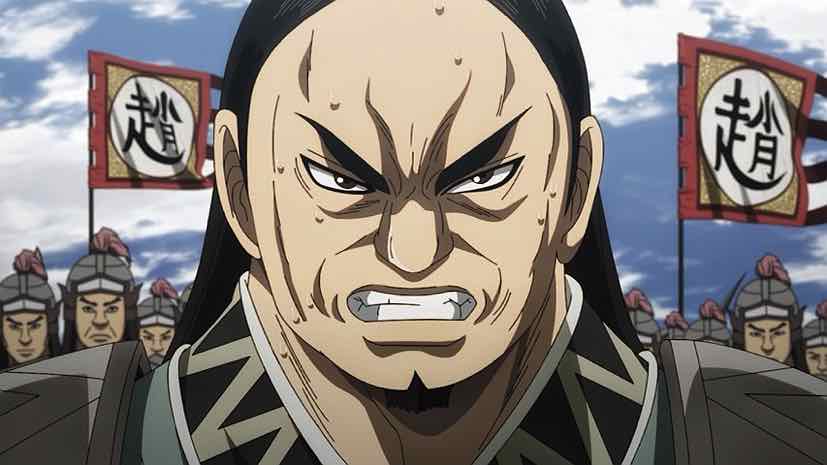 I remember Wang Jian coming off as kind of a freakshow – eating whole roasted cobras and the like. But it was clear at the time that he and Cai Ze were close friends, and he undeniably did Qin a huge (possibly decisive) favor in pulling out of the Coalition army. Thanking him for that is the first thing Zheng does in their off the record rooftop meeting with only Cai Ze and Changwen (and Changping is not going to be happy about that) present. Wang Jian wastes no time in laying his cards on the table – he demands to know how Zheng plans to unify over a kingdom of disaffected and stateless citizens stripped of their very nation, which will, he says, cause them and their lands to rot.
I remember Wang Jian coming off as kind of a freakshow – eating whole roasted cobras and the like. But it was clear at the time that he and Cai Ze were close friends, and he undeniably did Qin a huge (possibly decisive) favor in pulling out of the Coalition army. Thanking him for that is the first thing Zheng does in their off the record rooftop meeting with only Cai Ze and Changwen (and Changping is not going to be happy about that) present. Wang Jian wastes no time in laying his cards on the table – he demands to know how Zheng plans to unify over a kingdom of disaffected and stateless citizens stripped of their very nation, which will, he says, cause them and their lands to rot.
 Ultimately, while the battlefield has switched from military to political, the question being asked is the same. Is there a place for idealism in this setting? Zheng’s whole plan rests on it. He says this will work because Qin won’t rule these conquered lands, laws will. All will he equal under them, even royalty. And frankly it doesn’t get much more idealistic than that. Frankly I think any smart person in this time and place would be supremely skeptical. But Wang Jian clearly came to Xianyang hoping to be convinced. Having seen fifty years of devastation wrought by the status quo, he wants to bet on an alternative, however far-fetched. And he’s willing to refrain from intervening on behalf of the nations in-between Qi and Qin, contingent on Zheng being good to his word and up to the challenge.
Ultimately, while the battlefield has switched from military to political, the question being asked is the same. Is there a place for idealism in this setting? Zheng’s whole plan rests on it. He says this will work because Qin won’t rule these conquered lands, laws will. All will he equal under them, even royalty. And frankly it doesn’t get much more idealistic than that. Frankly I think any smart person in this time and place would be supremely skeptical. But Wang Jian clearly came to Xianyang hoping to be convinced. Having seen fifty years of devastation wrought by the status quo, he wants to bet on an alternative, however far-fetched. And he’s willing to refrain from intervening on behalf of the nations in-between Qi and Qin, contingent on Zheng being good to his word and up to the challenge.
Is any of this realistic? Well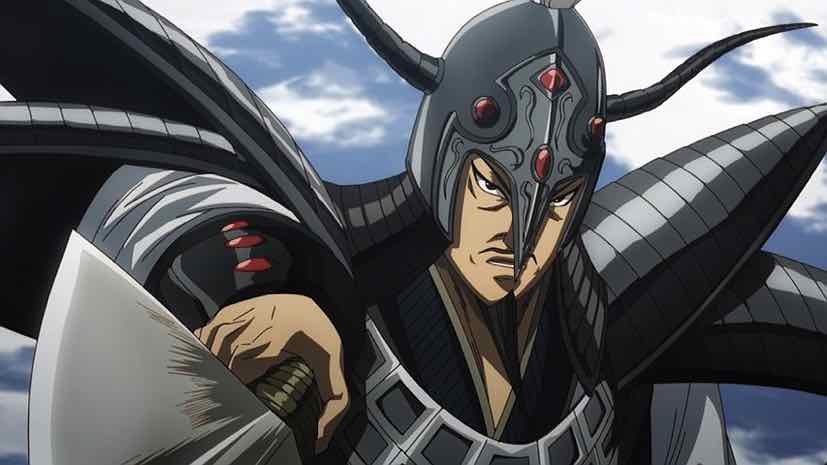 , the history books are full of spoilers, but it’ll be interesting to see how Kingdom spins them. Wars for peace are rarely what their instigators make them out to be, and while one might not doubt Zheng’s sincerity, it’s hard not to doubt his ability to deliver. And tactics like Huan Yi employs are fundamentally incompatible with the campaign the young monarch says he wants to engage upon. That just plays up the extent of the challenge Zheng faces, perhaps nowhere stronger than within his own military and government.
, the history books are full of spoilers, but it’ll be interesting to see how Kingdom spins them. Wars for peace are rarely what their instigators make them out to be, and while one might not doubt Zheng’s sincerity, it’s hard not to doubt his ability to deliver. And tactics like Huan Yi employs are fundamentally incompatible with the campaign the young monarch says he wants to engage upon. That just plays up the extent of the challenge Zheng faces, perhaps nowhere stronger than within his own military and government.
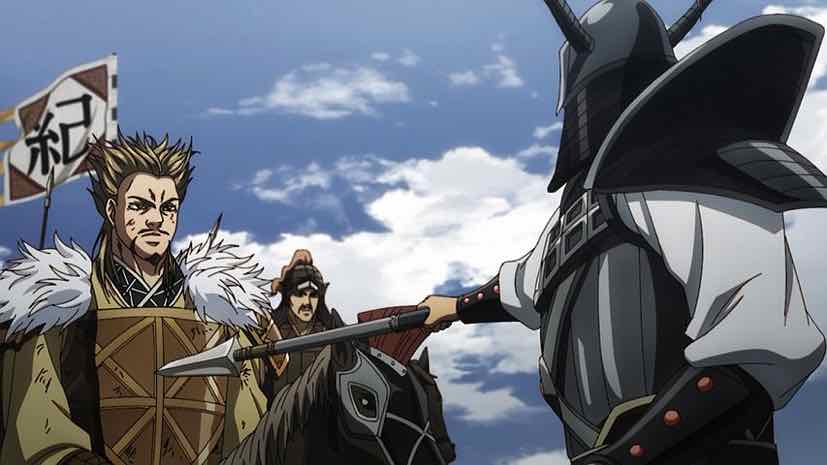 Li Mu is the single greatest obstacle to all this, of course. And Zheng, even should he be so inclined, can hardly eliminate him when he’s traveled to Qin under the flag of truce and the protection of a foreign ruler. The stage is being set for a very interesting next chapter in this saga, one which I certainly hope we see make its way to the screen sooner rather than later. Kingdom is an easy series to take for granted, but it makes any anime season – or year – better by its supremely reliable presence.
Li Mu is the single greatest obstacle to all this, of course. And Zheng, even should he be so inclined, can hardly eliminate him when he’s traveled to Qin under the flag of truce and the protection of a foreign ruler. The stage is being set for a very interesting next chapter in this saga, one which I certainly hope we see make its way to the screen sooner rather than later. Kingdom is an easy series to take for granted, but it makes any anime season – or year – better by its supremely reliable presence.


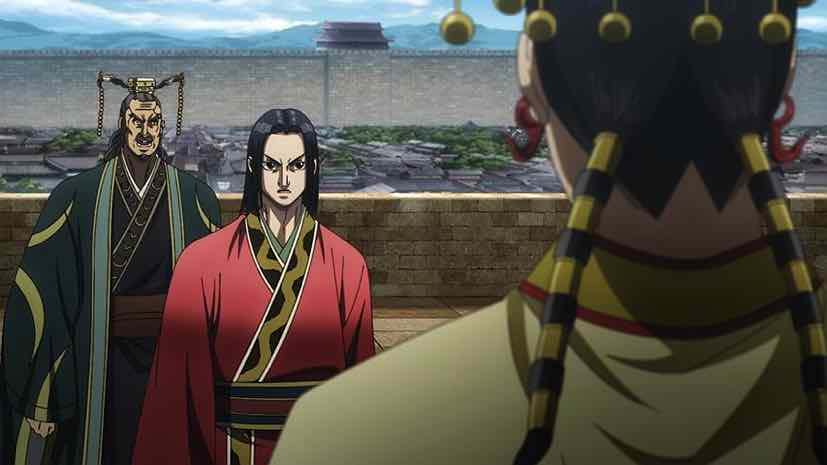

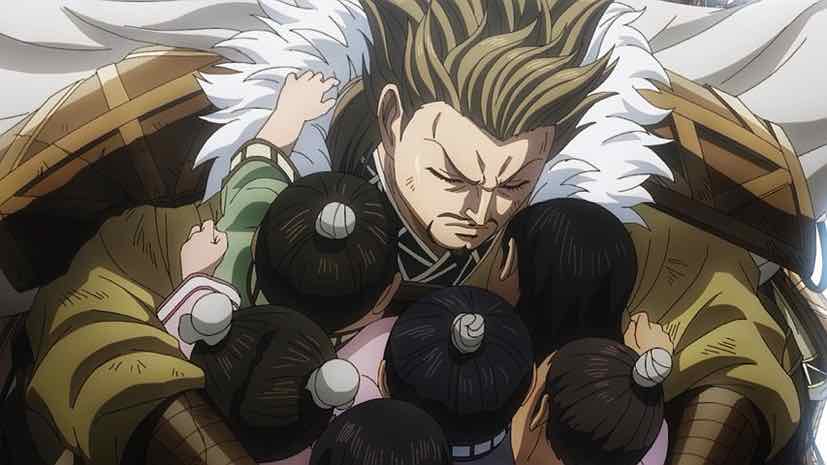
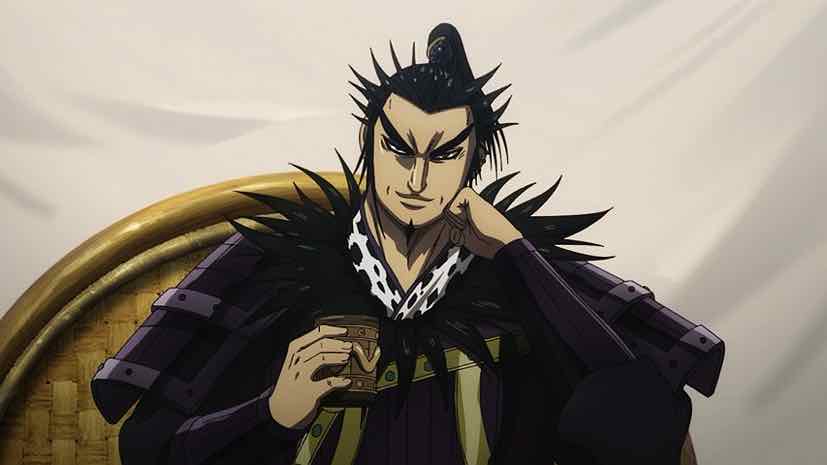
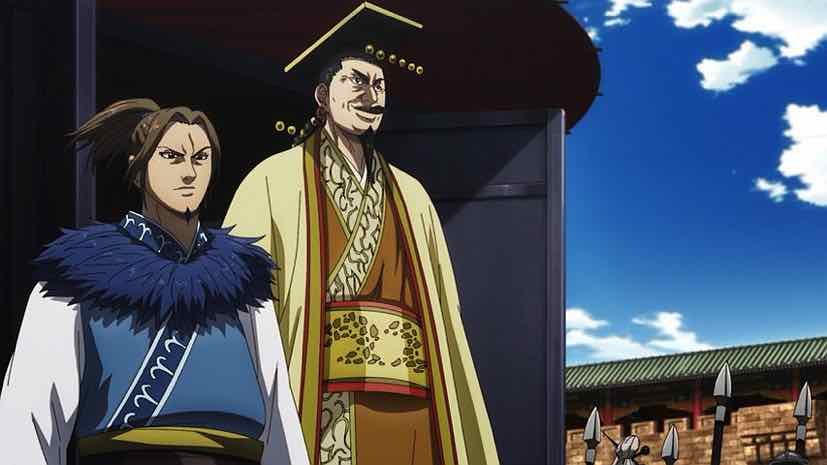
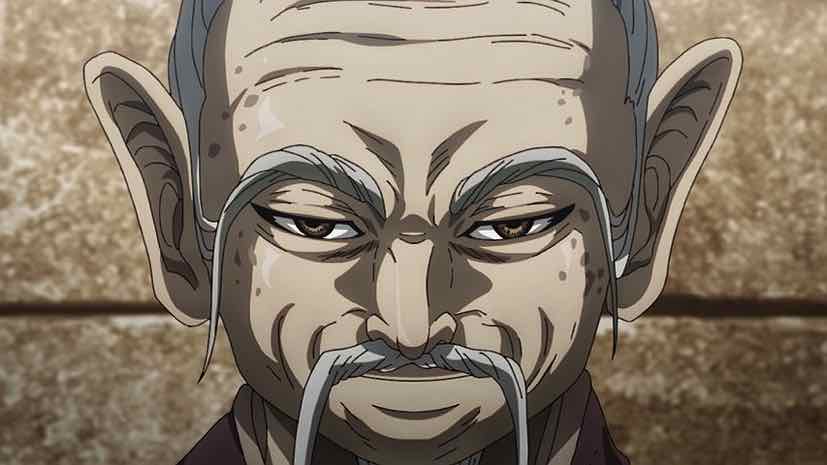
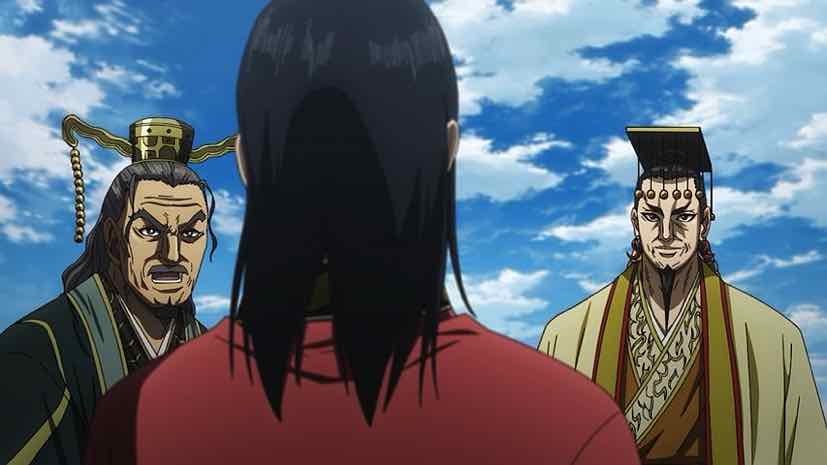
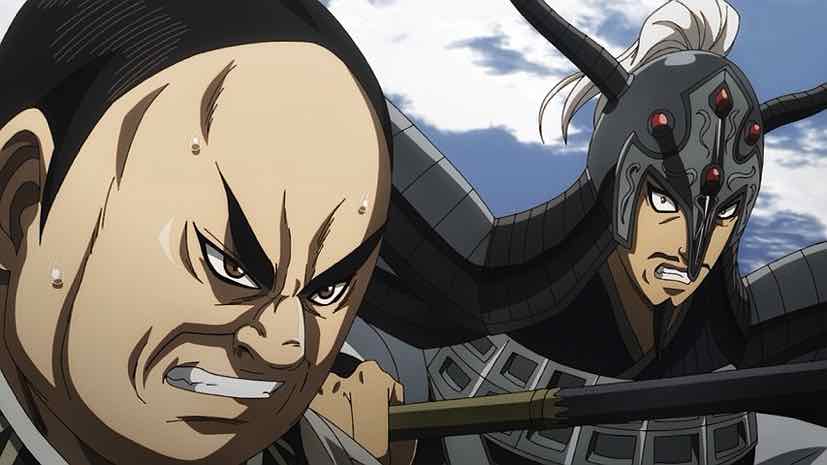
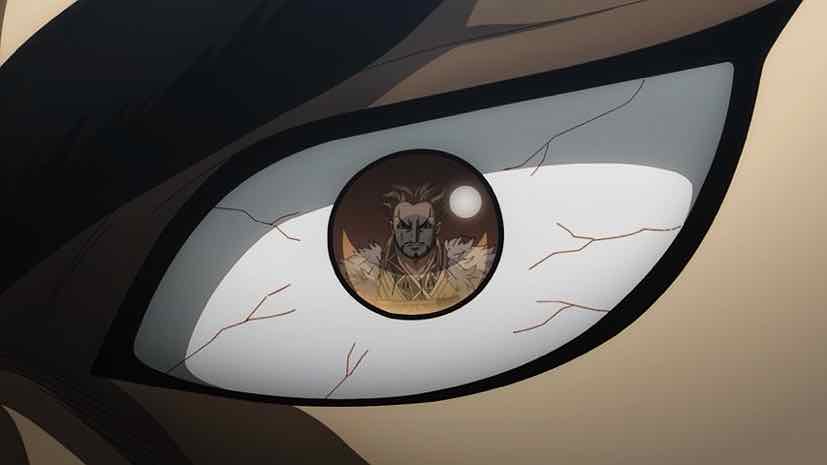


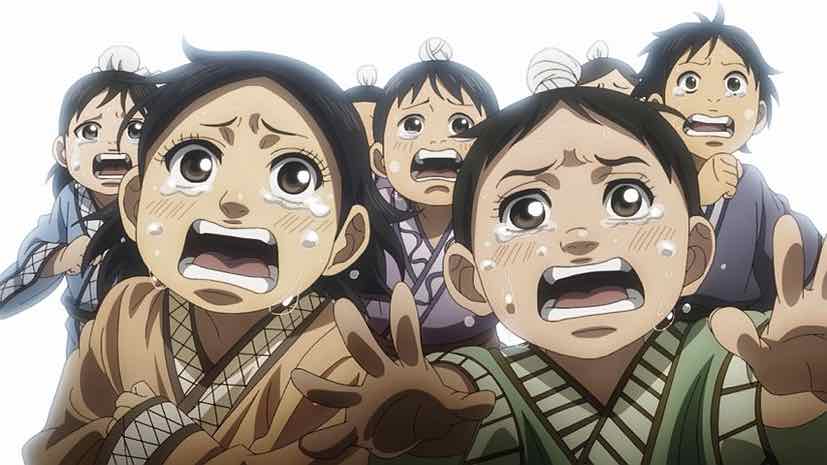

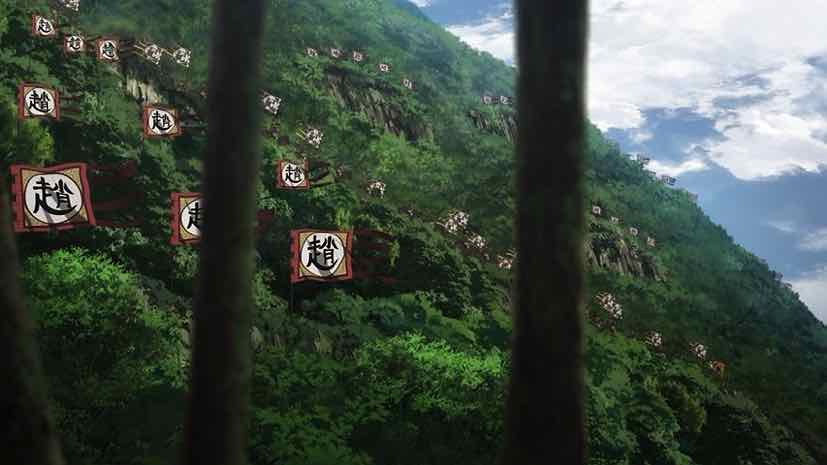


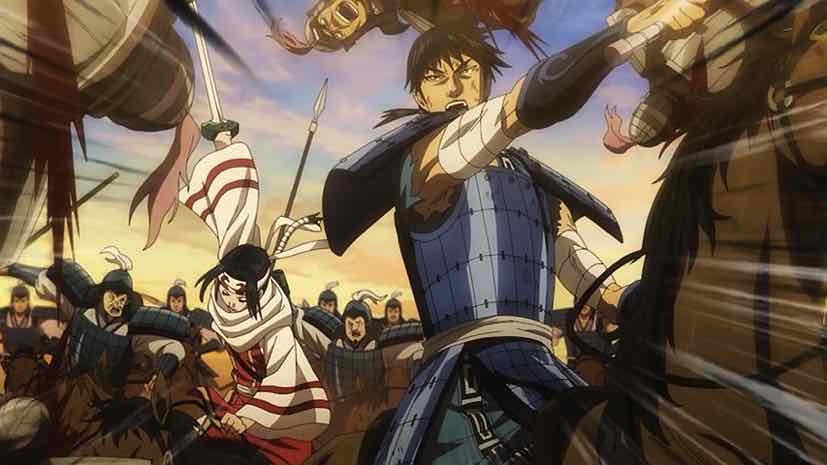
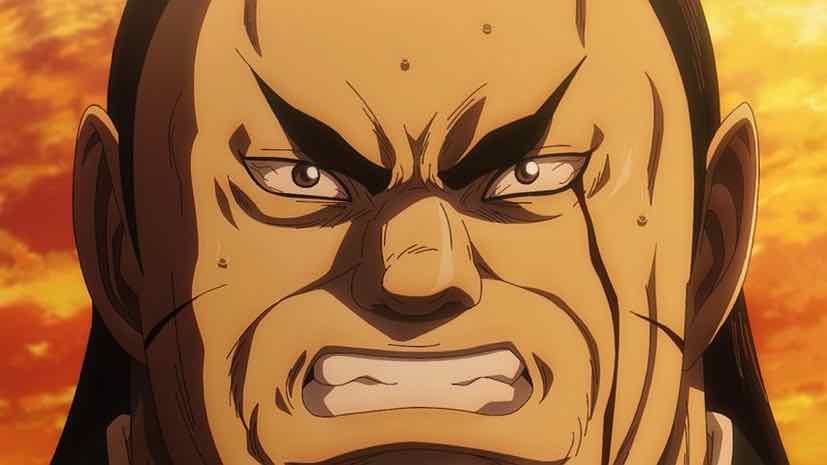
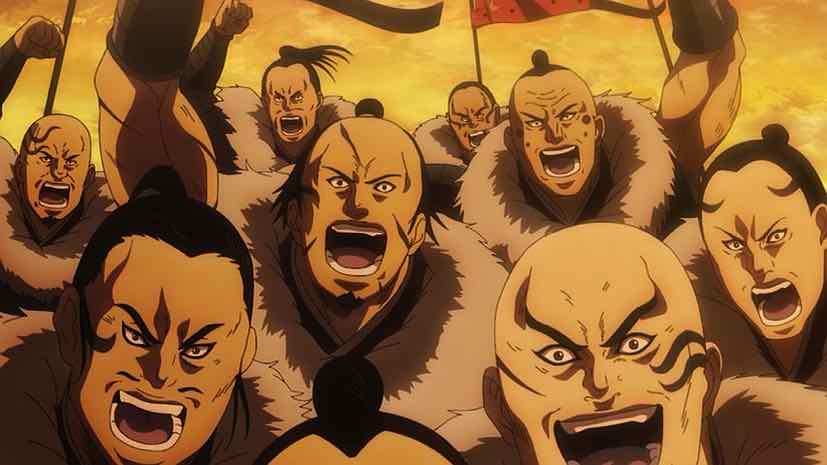
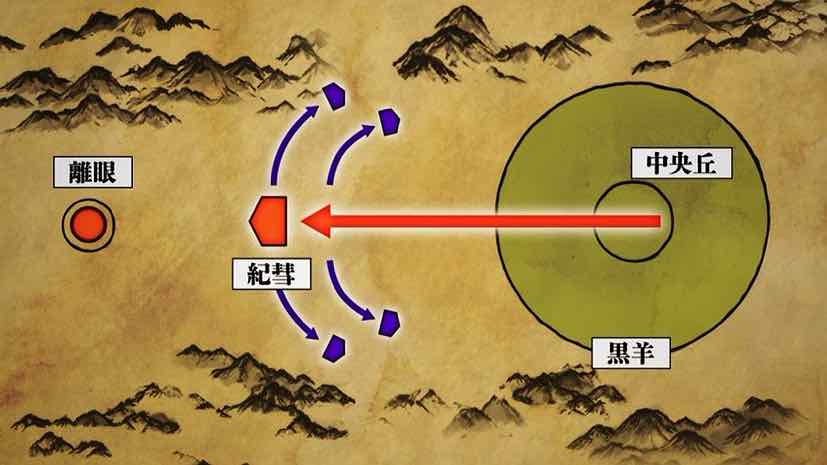

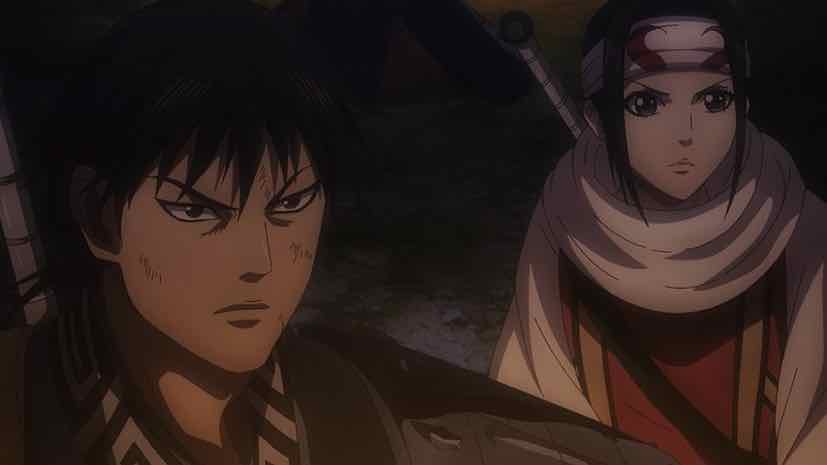

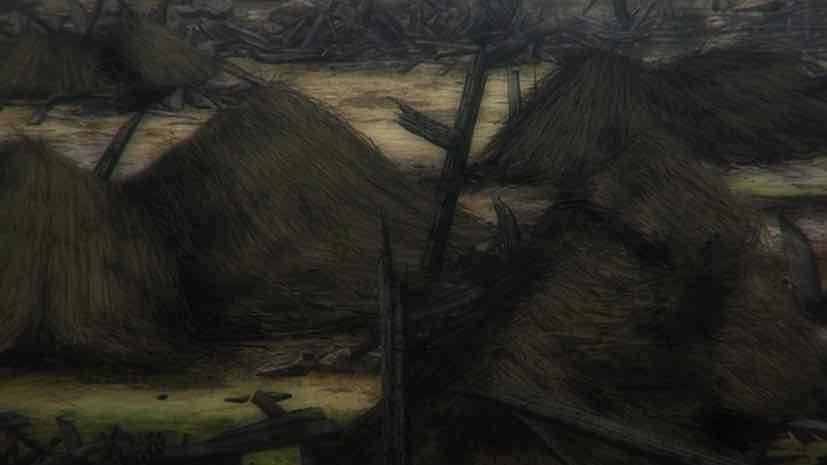

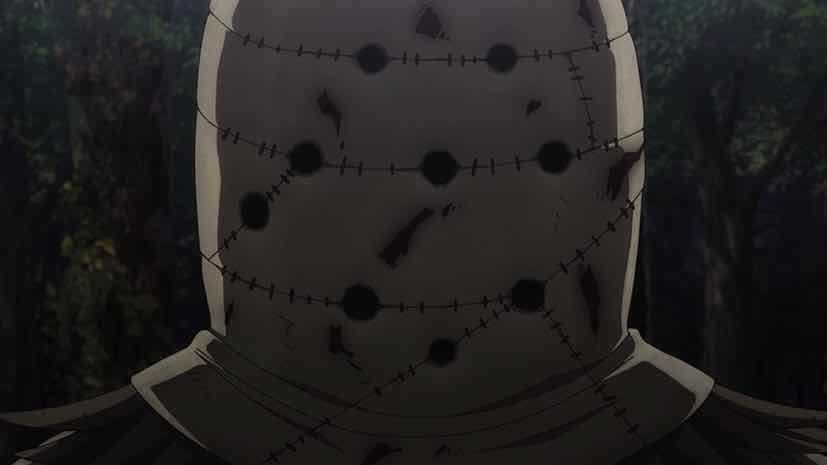

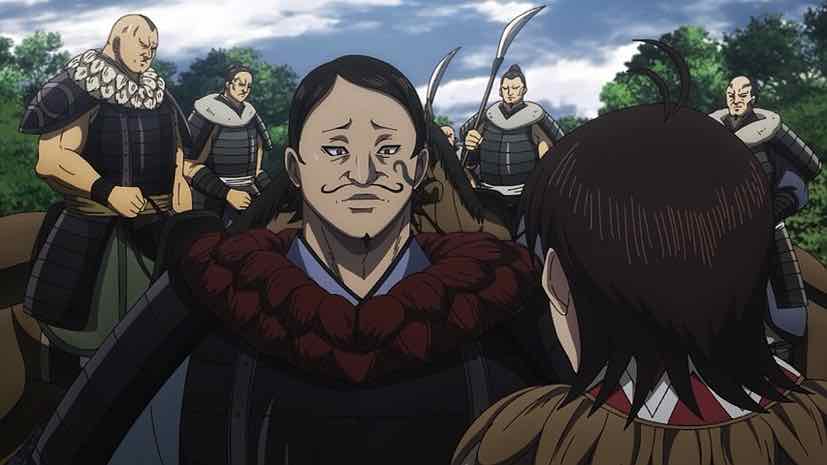








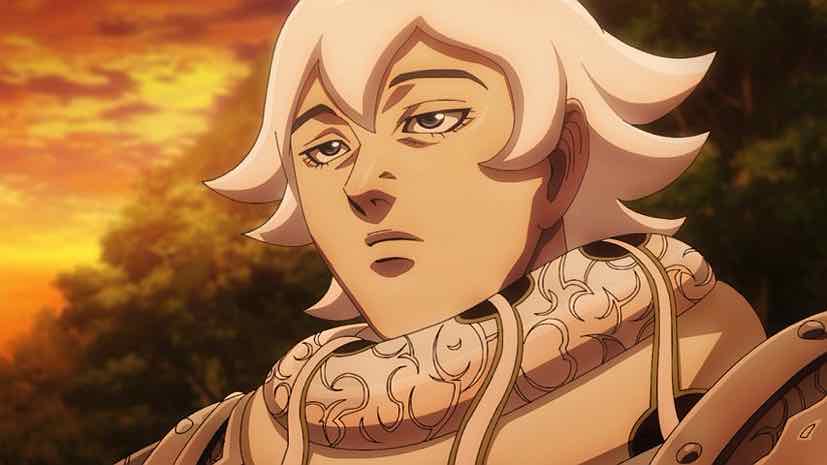
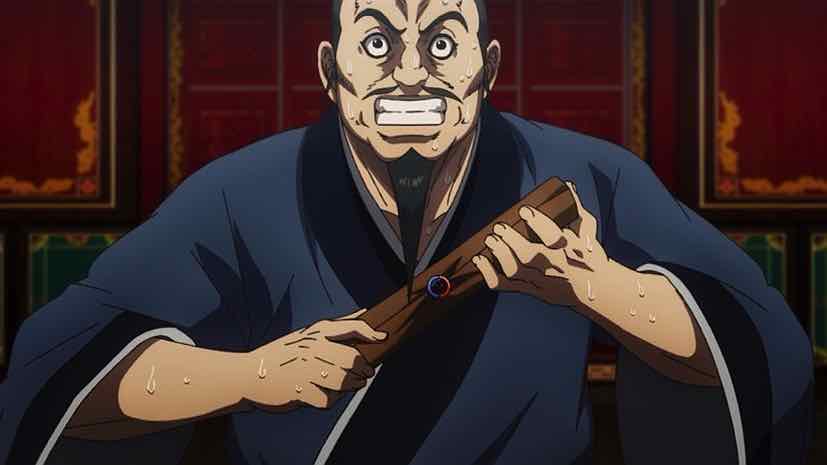



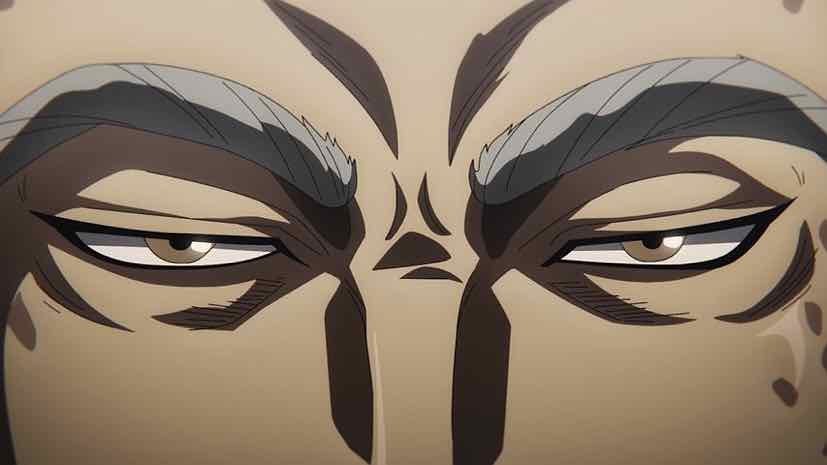

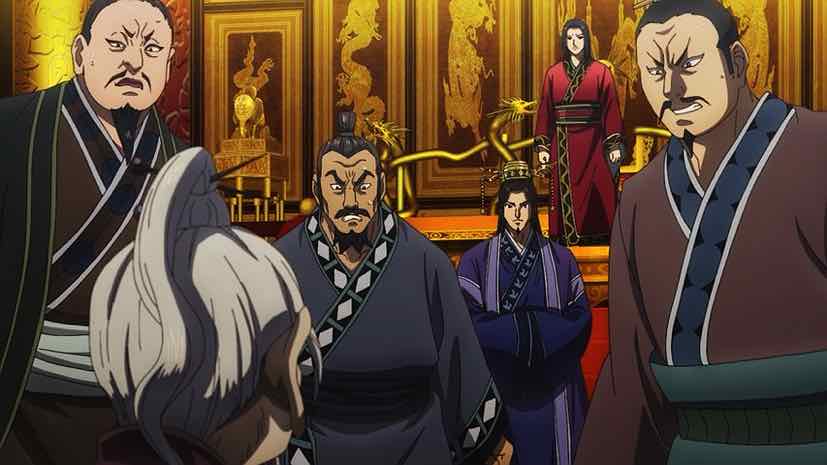





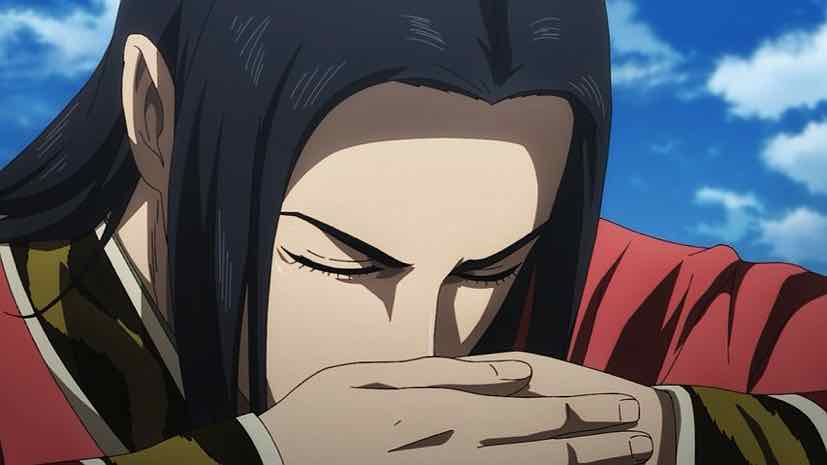
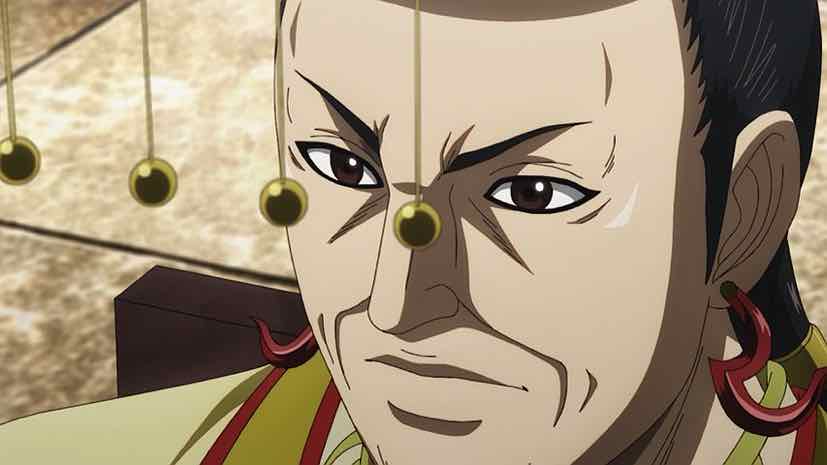

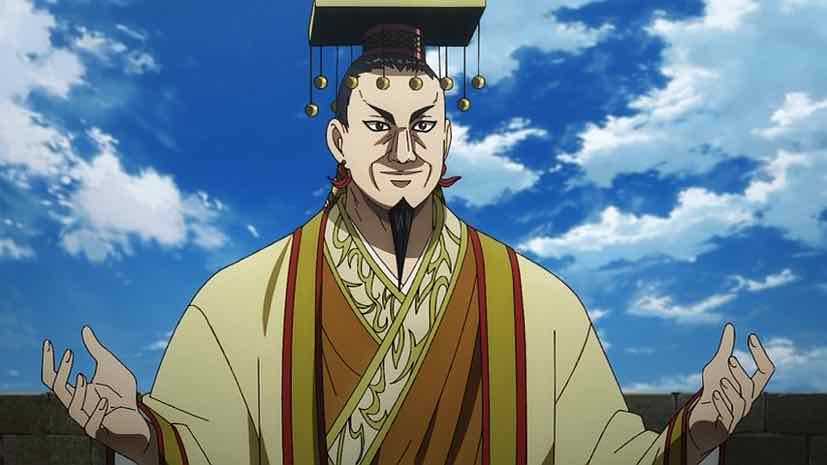
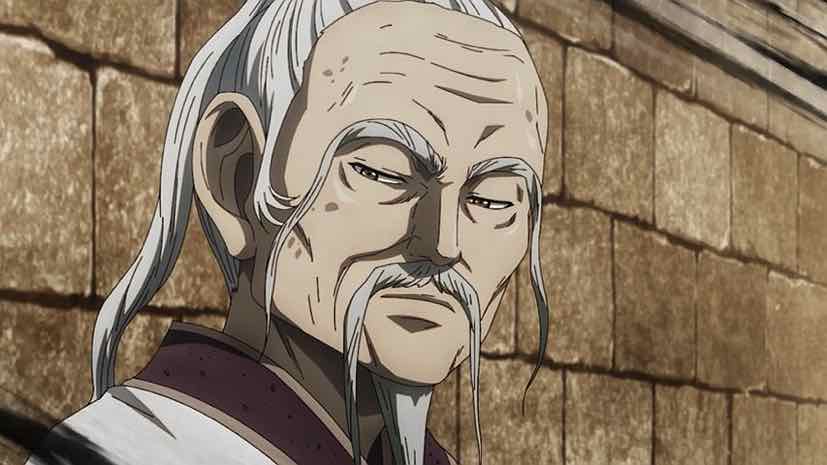
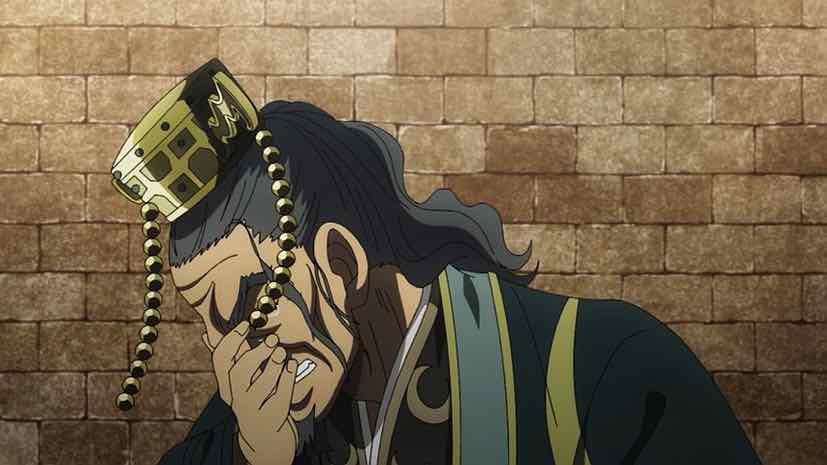
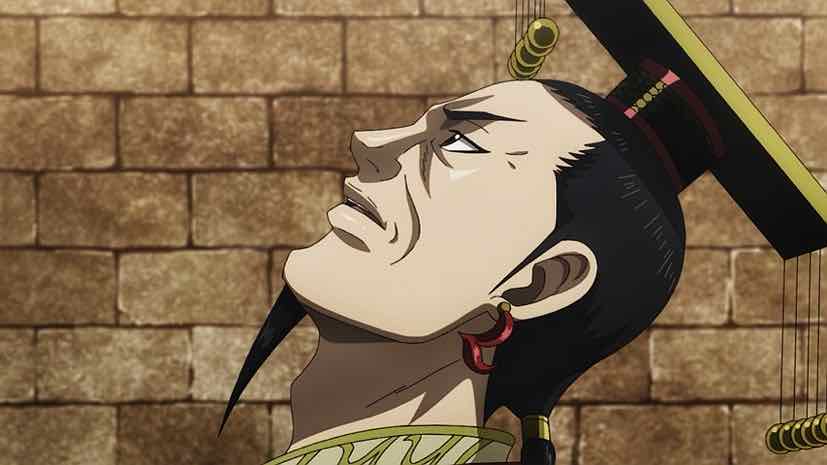


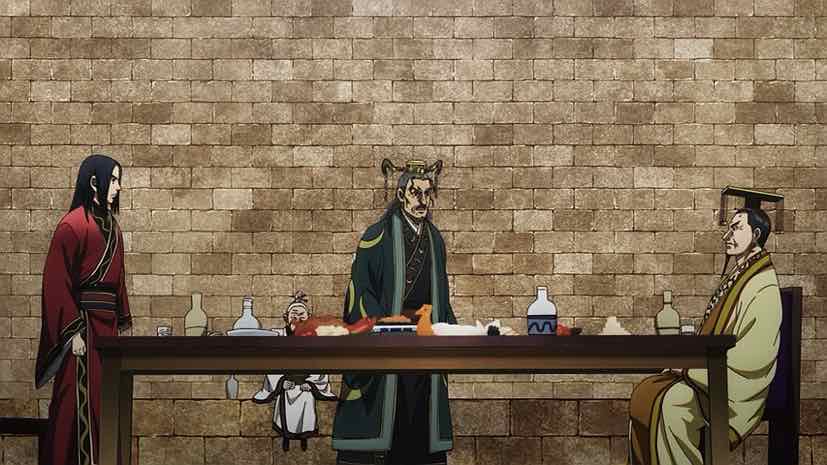





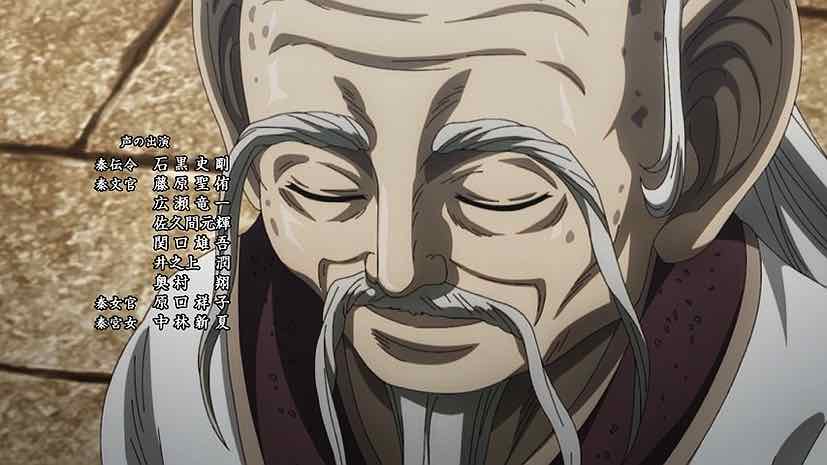
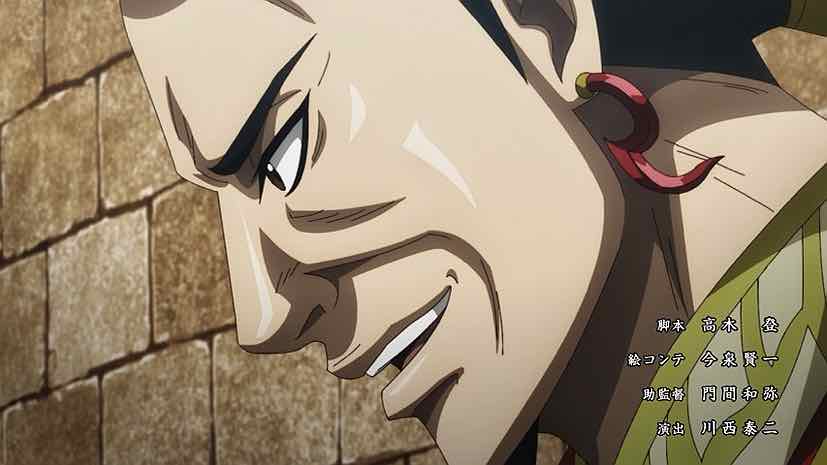
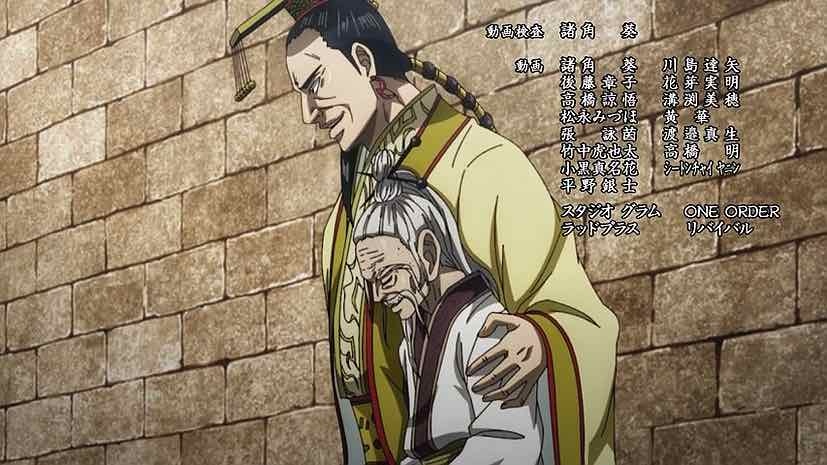
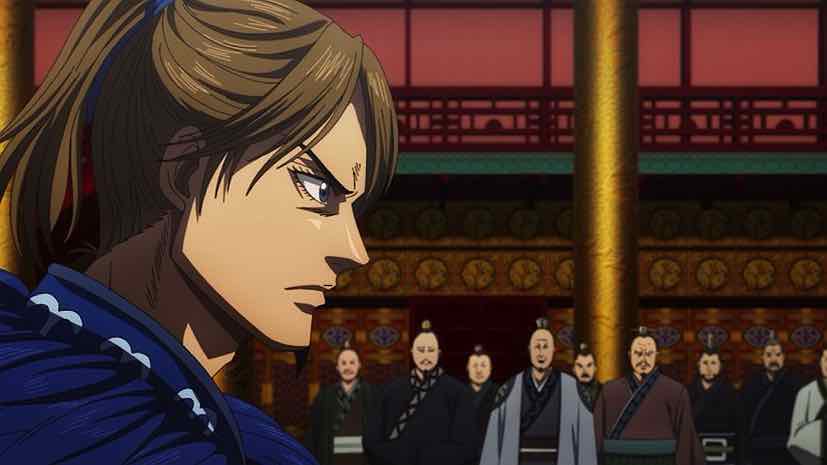



Snowball
April 1, 2024 at 2:33 amI’m surprised this was one cour as well and that there were two episodes this week. I think this arc mainly shows the clash between idealism and reality. Kanki (sorry, can’t write the Chinese names from the top of my head) was the worst opponent for Kisui who ended up being just as idealistic as Shin.
Skidda
April 1, 2024 at 3:22 amAw that’s a terrible way to end the week, I didn’t know either that it was already over…
Overall this season wasn’t the best but it’s still ‘Kingdom’ solid. The battle itself wasn’t that interesting (especially for a king of the hill scenario, or maybe because of it) but Huan Yi brought to the table what I hoped he would. Even if Kingdom always ends up copping out somehow when it adresses the atrocities of wars, at least it adresses it (and that’s pretty rare).
catterbu
April 1, 2024 at 4:52 amYeah. This season was maybe a step down from the last two, but in season where Solo Leveling was the most popular battle anime (I don’t count Frieren), Kingdom was a balm. Hopefully there is less time before season 6 since we only had one cours this time.
Marty
April 1, 2024 at 10:09 amI can’t wait for season 6, it should adapt my personal favorite arc in the manga.
While this season wasn’t as strong as past ones, I appreciate the narrative quality and consistency Kingdom has offered so far.